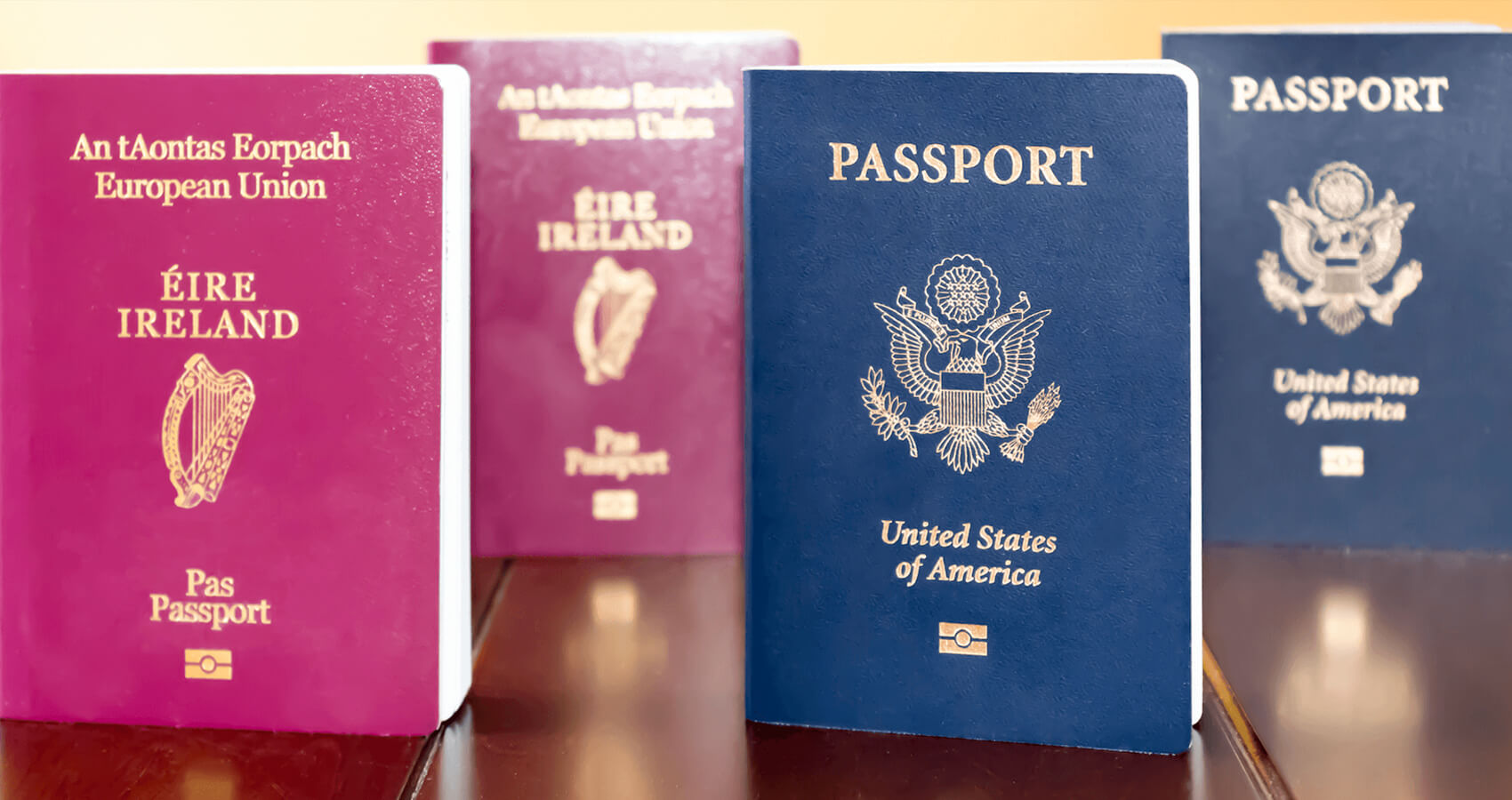In the ever-expanding global landscape, the pursuit of a second passport has become increasingly popular, offering a plethora of economic and social advantages. Once considered an unthinkable concept, dual citizenship has gained acceptance, leading to the identification of numerous countries that offer accessible paths for U.S. citizens seeking a second passport. This article delves into the growing demand for second passports, the methods of obtaining them, and highlights the 15 easiest countries for U.S. citizens to acquire a second passport.
Growing Demand for Second Passports:
The escalating interest in second passports has led to a significant number of Americans relocating globally, with approximately 9 million residing abroad, according to recent estimates from the State Department. Notably, 40% of U.S. residents abroad choose destinations in the Western Hemisphere, while 26% move to Europe, and 14% each to East Asia and the Pacific, and the Middle East. This trend is further exemplified by prominent figures such as Sam Altman, Eric Schmidt, and Peter Thiel obtaining foreign citizenships.
Methods to Obtain a Second Passport:
The article outlines four primary paths for acquiring a second passport: citizenship through birth/descent, marriage, investment, and residency-by-investment programs or naturalization. Dual citizenship offers various benefits, including global travel access, enhanced social and economic opportunities, and tax reliefs. The advantages and disadvantages of dual citizenship are discussed in a detailed analysis provided in another article.
Multinationals Expanding to Europe:
The European market, comprising some of the largest global economies, has witnessed a surge in multinational companies (MNCs) expanding their operations. Ireland, in particular, experienced a significant positive impact in 2022, with MNCs contributing 56% to its total value added. Companies like Apple, Facebook, Pfizer, and Google played a pivotal role in sectors such as information and communication. Notably, Pfizer secured EU anti-trust approval for its $43 billion acquisition of Seagen, while Apple expanded its Self Service Repair program in 24 additional European countries.
15 Easiest Countries for Second Passport for US Citizens:
The article employs a comprehensive methodology, combining research on the best and most straightforward options with cross-referencing findings from ImmigrantInvest.com’s list of countries allowing dual citizenship for U.S. citizens. The list spans diverse regions, including Latin America, Asia, the South Pacific, Europe, and the Caribbean Islands. The top 15 countries are ranked based on their ease of providing second passports for U.S. citizens.
- Portugal:
Portugal stands out as the easiest country for U.S. citizens to obtain a second passport, thanks to its Golden Visa program, which requires a minimal physical presence of only seven days a year. The process involves a two-year residency after a €250,000 investment, with citizenship potentially accessible after five years.
- Malta:
Malta has become a preferred destination for individuals worldwide, including Americans, seeking a second citizenship. The country’s Citizenship for Exceptional Services Regulations (CES) program allows qualified investors to acquire citizenship in either 12 or 36 months, depending on their investment in the national development fund.
- Dominica:
Dominica emerges as a convenient choice for U.S. citizens looking for a second passport among the beautiful Caribbean islands. The country’s citizenship-by-investment programs offer a swift and straightforward pathway, with a $100,000 investment leading to a Dominican passport in just four months.
- Spain:
Spain distinguishes itself as one of the most accessible countries for U.S. residents seeking a second passport through its residency-by-investment program. The Golden Visa entails a significant investment of €500,000, leading to permanent residency after five years and potential citizenship after an additional five years.
- Mexico:
Mexico stands as an appealing destination for U.S. expats, attracting them with its low cost of living, affordable healthcare, and pleasant weather. The country offers a straightforward process for U.S. residents to acquire a second passport, especially through citizenship by descent, which is simple and cost-effective.
- Grenada:
Grenada secures the sixth position on our list of the easiest countries for U.S. citizens to obtain a second passport. This is primarily attributed to the expeditious process offered by its citizenship-by-investment program, where a minimum investment of $150,000 for a single person leads to citizenship within three to six months.
- Antigua and Barbuda:
The Caribbean Islands remain among the easiest routes for U.S. residents seeking a second passport, with Antigua and Barbuda being a prominent choice. The country’s low investment amount of $100,000 and straightforward process allow citizenship to be obtained in about three to four months.
- Cyprus:
Cyprus is recognized as one of the most accessible countries offering citizenship through its residency-by-investment program. The Golden Visa allows individuals to acquire residency rights within three months with an investment of at least €300,000, paving the way for potential citizenship in approximately seven years.
- Canada:
Canada is widely regarded as one of the most accessible countries for U.S. residents seeking dual citizenship, owing to its welcoming environment and straightforward immigration process. While visa-free stays of up to 180 days are permitted, longer stays require a visa or residency permit, with pathways like the Express Entry System facilitating citizenship after fulfilling residency requirements.
- Ireland:
Ireland emerges as a favored immigration destination, notably through its Descent Program, which grants citizenship rights based on ancestral connections or marriage to an Irish citizen. A residency requirement of at least three years with the spouse or partner makes Ireland an accessible option for obtaining a second passport for U.S. citizens.
- Vanuatu:
Vanuatu stands out in the Pacific region as the leading provider of citizenship through its exclusive citizenship-by-investment program. U.S. residents can acquire citizenship by investing $130,000, enjoying tax benefits and a streamlined process completed in approximately two months.
- St. Lucia:
St. Lucia, akin to St. Kitts and Nevis, emerges as one of the easiest choices for U.S. citizens seeking a second passport. The country’s investment program necessitates a $100,000 contribution to the Government Development Fund, facilitating dual citizenship for the investor and their family within just three months.
- St. Kitts and Nevis:
St. Kitts and Nevis, nestled in the Caribbean, attract U.S. residents seeking natural beauty and financial opportunities. The citizenship-by-investment program offers one of the quickest routes for U.S. citizens to obtain a second passport, with a $250,000 payment to the Sustainable Island State Contribution (SISC) and completion of the immigration process in just four months.
- Italy:
Italy distinguishes itself as one of the most accessible European countries for U.S. residents seeking citizenship through descent. Documentation of Italian descent, including birth certificates and family records, qualifies individuals for citizenship if specific conditions, such as citizenship acquisition by the ancestor before June 14, 1912, are met without renunciation or replacement.
- New Zealand:
New Zealand, situated in the Asia and South Pacific region, provides a straightforward pathway for obtaining citizenship through descent. If one parent is a New Zealand citizen, the child can acquire citizenship within approximately 30 working days, with an expedited processing option available in just 10 days for an additional fee. This placement is based on the country’s ease of obtaining citizenship through descent and its allowance for dual citizenship for U.S. residents.



